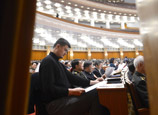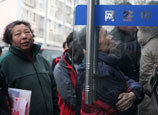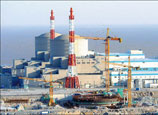
The ongoing National People's Congress of around 3,000 representatives has 699 women deputies, up by 2.07 percent from last year to 23.4 percent. It's a big increase from the 12 percent in the first congress nearly 60 years ago, but women's representation is still less than a quarter. That's just slightly above what was stipulated in 2007: women deputies must account for no less than 22 percent of the total.
Zhen Yan, vice chairwoman of the All-China Women's Federation, recently pointed out that many senior women executives and engineers have been forced out of work before age 55, despite the stipulation that they should be able to choose whether to continue work or to retire before 60.
She cited data from Third Survey on the Status of Chinese Women, released in late 2010, which reported the average retirement age for senior women professionals to be 52.5 years.
The same survey reported the average income of working women is only 67.3 percent that of males in cities and 56 percent in rural areas.
Senior women executives are only around half the number of senior men in government departments, institutes and state-owned enterprises, according to the same survey. Twenty percent of these bodies recruit only men or give men priority in recruitment, while men also get promoted faster in 30 percent of these employers.
And it starts at entry-level jobs. Shanghai University senior Linda Liu is going through the recruiting season. A relative helped her interview at a state bank, but warned her the bank prefers men because they are considered more career-focused. Liu didn't get the job and wasn't told why.
Shanghai Normal University master's degree candidate Rachel Xiao is seeking a lecturer's job, but is often told that various institutes in the university only want male lecturers.


















 Men experience life of pregnant women to mark International Women's Day
Men experience life of pregnant women to mark International Women's Day


![]()
